Week of the Young Child
by Peggy Emde
For many of us, cooking with young children sounds like a challenging experience. What comes to mind when you think of kids in the kitchen? A big mess? An accident waiting to happen? More trouble than it’s worth?
On the other hand, cooking with children offers many natural learning opportunities in math, science, language/literacy, and health. It is also a great time to build relationships.
These days, there may be less time for children to experience cooking in the home. Many meals are rushed, maybe with drive-thru food. With that in mind, making time for simple cooking experiences is even more important. Ready to give it a try?
Start small!
Toddlers need lots of opportunities to pour, stir, and mix in the sandbox or bathtub, and then they can graduate to pouring their own milk at meal time.
Stay simple!
Choose a simple recipe with just a few ingredients that matches your child’s skill level. Also, look for one that doesn’t involve a long wait time!
Stock up! Be sure that you have all the ingredients and utensils ready before hand.
Safety First!
Cooking often involves heat and sharp objects, so close supervision is a must. (Leave your phone in the other room!) Use plastic rather than glass containers, and child sized utensils (plastic serrated knives for instance.) Avoid recipes that involve frying or very high heat.
A Recipe for Success:
Explain in very clear terms the process/steps of the recipe. Remember, cooking experiences don’t always mean heating something or even eating something. Making no-cook playdough is an easy first recipe to try.
Always wash and dry hands before and after cooking. Have children help with washing all fresh food items.
Show how to hold foods when grating or peeling, and how to hold food down on a cutting board when cutting by making a claw with the hand.
Gently remind about safety rules as you cook: “Only adults may handle the heated appliance.”
Let children do as much for themselves as possible. If you are doing most of the work, the children aren’t getting the most from the experience!
Let’s look at the learning possibilities for you and your children:
Science: Observing; Classifying; Changes in matter; Cause and effect; Sensory experiences. Ask:
· What happened when we stirred it?
· Which ingredients are the same? Different?
· What do you think will happen when water is added?
· What happened when we baked it, how is it different?
Math: The concept of numbers……recipes are all about numbers! Measuring; Estimating; Fractions; Comparing; One to one correspondence. Ask:
Which container has the most?
Can you count 3 teaspoons?
Do you think that is enough flour?
If you slice it once how many pieces does that make? How many will you have if you slice it two times?
How can we get all of the cookies on the cookie sheet?
Language and Literacy: New vocabulary words - knead, pour, stir, grate; Descriptive words like sweet, salty, tart; Reading recipes and looking at the pictures together; Writing a grocery list; Setting the timer. Ask:
Do our carrots look like the ones in the book?
What does this taste like?
What did the caterpillar in the story eat that you like?
Can you choose a recipe to use from the book?
What do you think this utensil is called?
Health and Personal Care Skills: Good hygiene; Healthy eating habits; Food groups; Portion control. Talk about:
Why we wash our hands before preparing and eating, and why foods must be washed before preparing.
How everyone has different tastes, and how we can learn to like new tastes.
How foods affect our bodies, both good and bad.
How foods are alike and different, and which food group they belong to.
When we think about all of this learning potential, it becomes very clear how important cooking with children can be. If we are prepared and willing to offer these experiences to the children in our care, the rewards can be enormous!
Learn more about Week of the Young Child and the National Association for the Education of Young Children at their website, www.NAEYC.org

